1996-11-04 11:22
[ Emerging New Maritime Policy of the Repubic of Korea ]
Emerging New Maritime Policy of the Repubic of Korea
: Towards the 21st Century
Mr. Sang-Woo, Shin, the Ministry of Maritime Affairs and Fisheries(MO
MAF)of South Korea , announced that “Emerging New Maritime Policy of
the Republic of Korea:Towards the 21st Century”at the Seoul Foreign C
orrespondents’ Club in the Seoul Press Center on 16 October 1996.
Totals of a luncheon his speech on the topic of the that as follows:
(from last week)
Taking into consideration several key elements mentioned above, MOMAF
has identified the following six objective:(1) to establish a plan the
ocean century to expand global maritime economic territory, and stren
gthen management capability; (2) to apply world-class technology to oc
ean science and industy, and contribute responsible use of the world’
s oceans; (3) to transform the maritime logistics from “high-cost/low
-efficiency” to “low-cost/high efficiency” through the further deve
lopment of Kadukdo and Kwangyang ports as two hub-ports system; (4) to
shift from hunting-type fishing to mariculture, and diversify distant
-water fishing grounds through the enhancement of fishery
diplomacy, and establish economically vital fishing villages; (5) to m
aintain safe and clean seas though the prescriptive measures and conti
ngency plan; (6) to promote among citizens a new and abiding awareness
regarding the ocean.
We are planning to enhance our ocean development indicators as can be
seen in Appendix 1 & 2. We will strive to raise our level of ocean sci
ence and technology, in comparison with that of developed states, from
1995’s 60 percent figure to 90 percent in 2011. We also intend to in
crease our ocean sector contribution to the GNP from 1995’s 8 percent
(or 20 trillion won) to 12 percent (or 221trillon won) in 2011.
The coming century presents unprecedented challenges and opportunities
for the Pacific Rim countries, which comprise the very engine of wor
ld growth, an addressing marine and coastal zone-related affairs.
We believe that there are indicators foretelling the opening of a wind
ow of opportunity and the emergence of a new period in ocean developme
nt.
As the world population by the year 2010 will have increased by 30 per
cent over 1991, food production, including seafood production, will ne
ed to double, and industrial output and energy use will probably tripl
e worldwide.
New resource discoveries, technological advancement, and newly raised
expectations have spurred most coastal states to enforce their economi
c and national security interests.
National management policies for these zones, however, may be formulat
ed with insufficient understanding of the transnational and interdepen
dent nature of the ocean environment and the resouces and activities i
t supports. Indeed, the overlapping of national regulations on transna
tional resources and activities sets the stage for interantional confl
icts.
On the other hand, it also provides opportunites for cooperation. Inte
rdependence among nations almost certainly will continue to increade i
nto the 21st century. It is most likely that the new economic partners
hips will create an increasingly competitive world economy.
On the global level, the interplay of ocean science and technology pol
icy and interanational relations is easily manifest seen. Deep seabed
mining, distant-water fisheries, maritime nuclear-ree zones, global cl
imate changes, sealanes, ocean data collection, ocean technology trans
fer, and harvesting of Antarctic marine resources are all issues that
have drawn the attention of the global village.
Korea is finalizing to join the OECD club by the end of year. If we ap
ply the maturity of Korean economy to the marine afairs, I am of the o
pinion that Korea should thke a heedful consideration to assist develo
ping states’ needs for technological cooperation, while Korea should
make the nations of ocean wealth understood our proposals for bilatera
l and multilateral cooperation.
Allow me to conclude by stressing that theh very concept of Pacific co
operation derives from the fact that the ocean itself, being named “t
he Peaceful Ocean”by Ferdinand Magellan, is the unifying force in the
region. Without an framework of cooperation to manage and utilize its
resources, the very notion of Pacific cooperation cannot endure. In t
he absence of such a framework, the ocean will quickly turn into a div
isive force.
The oceans surrounding the nation are important to the well-being of o
ur citizens in many ways. Maximizing the long-term benefits of ocean r
esources and uses to the nation requires clearly articulated national
ocean priorities and an stable ocean governance system. An Opportunity
to place better-integrated ocean policy proposals on the national age
nda would apperar to be imminent.
Policy alterantives which are developed in response to carefully analy
zed problems and which have been presented ofor serious discussion wil
l have the best chances for acceptance when that window of opportunity
opens. Thus, I believe that it is clearly time for the next generatio
n of ocean policy proposals to emerge.
We did not all come over on the same ship, but we are all in the same
boat, “the Earth Spaceship”. So the future is in our hands.
In closing, I would like to espress my heartfelt appreciation to the o
rganizers of this important forum. Thank you.
The “MSC Insa” Calls Pusan Port
Since Mediterranean Shipping Co., S.A. in Geneva(MSC) began its new se
rvice from Far East to Europe and the Mediterranean from last June und
er a consortium with Hyundai Mercaant Marine and Norasia, MSC Insa, on
e of the four vessels assigned to this service made her first call to
Pusan on 29th September 1996. The vessel is 289M long, 32M wide and ha
s a capacity of 2,532TEUs.
Following after the vessel, MSC Alexa(3301TEUs) and MSC Carla(2868TEUs
) called Pusan in the middle of October. The last one, MSC Jasmine(298
7TEUs) will arrive Pusan in 2nd December. MSC Insa will call again on
19th November in her new name, MSC Rafaela.
This new service of MSC, now offering full container service throughou
t the world with about 90vessels, will be a good opportuinty to provid
e the clients in the Far East with a variety of service by connecting
to its feeder network for north and West Africa Black Sea and East Med
iterranean Sea.
High Technology Investment at Antwerp Combined Terminals
Antwerp’s container trade in 1996 is displaying satisfying growth (up
8% in the first two quarters). However, this has not brought any slow
down in investment in handling equipment for conventional breakbulk c
argo. So, in early October ACT for example took delivery of two brand
new Gottwald HMK 280 E cranes. Each of these mobile cranes has a lift
of 100 tonnes and is provided with various technical innovations, many
of which were devised in direct consultation with ACT. The new cranes
will be used primarily for handling iron and steel. ‘They have a lif
t of 100 tonnes at a reach of 20m, and can still lift 28.6tonnes at 50
m. When used together, however, they can manage a combined load of 185
tonnes. The hoist speed is 32metres a minute with 63 tonnes on the ho
ok and up to 80 metres a minute unloaded.
Another aspect which guarantees higher productivity is that the manual
control is computer assisted. The computer damps the osilltion when h
andling containers for instance, thus reducing the number of correctio
ns the rane driver has to make, and allows considerable improvements i
n operating speed to be achieved. Another innovation that will boost p
roductivity is the development of a programme which will make it possi
ble to control the two cranes jointly, i.e. for combined operations. T
he anticipated operating speed of htese advanced cranes is thus consid
erable and depending on the type of ship being worked will be between
25 to 30 containers an hour.
The two new cranes give ACT a total of seven mobile cranes, two of whi
ch have a capacity of 50 tonnes and five a capccity of 100 tonnes. ACT
’s investments have certainly paid off so far, with 10% more business
during the first eight months of the year.
: Towards the 21st Century
Mr. Sang-Woo, Shin, the Ministry of Maritime Affairs and Fisheries(MO
MAF)of South Korea , announced that “Emerging New Maritime Policy of
the Republic of Korea:Towards the 21st Century”at the Seoul Foreign C
orrespondents’ Club in the Seoul Press Center on 16 October 1996.
Totals of a luncheon his speech on the topic of the that as follows:
(from last week)
Taking into consideration several key elements mentioned above, MOMAF
has identified the following six objective:(1) to establish a plan the
ocean century to expand global maritime economic territory, and stren
gthen management capability; (2) to apply world-class technology to oc
ean science and industy, and contribute responsible use of the world’
s oceans; (3) to transform the maritime logistics from “high-cost/low
-efficiency” to “low-cost/high efficiency” through the further deve
lopment of Kadukdo and Kwangyang ports as two hub-ports system; (4) to
shift from hunting-type fishing to mariculture, and diversify distant
-water fishing grounds through the enhancement of fishery
diplomacy, and establish economically vital fishing villages; (5) to m
aintain safe and clean seas though the prescriptive measures and conti
ngency plan; (6) to promote among citizens a new and abiding awareness
regarding the ocean.
We are planning to enhance our ocean development indicators as can be
seen in Appendix 1 & 2. We will strive to raise our level of ocean sci
ence and technology, in comparison with that of developed states, from
1995’s 60 percent figure to 90 percent in 2011. We also intend to in
crease our ocean sector contribution to the GNP from 1995’s 8 percent
(or 20 trillion won) to 12 percent (or 221trillon won) in 2011.
The coming century presents unprecedented challenges and opportunities
for the Pacific Rim countries, which comprise the very engine of wor
ld growth, an addressing marine and coastal zone-related affairs.
We believe that there are indicators foretelling the opening of a wind
ow of opportunity and the emergence of a new period in ocean developme
nt.
As the world population by the year 2010 will have increased by 30 per
cent over 1991, food production, including seafood production, will ne
ed to double, and industrial output and energy use will probably tripl
e worldwide.
New resource discoveries, technological advancement, and newly raised
expectations have spurred most coastal states to enforce their economi
c and national security interests.
National management policies for these zones, however, may be formulat
ed with insufficient understanding of the transnational and interdepen
dent nature of the ocean environment and the resouces and activities i
t supports. Indeed, the overlapping of national regulations on transna
tional resources and activities sets the stage for interantional confl
icts.
On the other hand, it also provides opportunites for cooperation. Inte
rdependence among nations almost certainly will continue to increade i
nto the 21st century. It is most likely that the new economic partners
hips will create an increasingly competitive world economy.
On the global level, the interplay of ocean science and technology pol
icy and interanational relations is easily manifest seen. Deep seabed
mining, distant-water fisheries, maritime nuclear-ree zones, global cl
imate changes, sealanes, ocean data collection, ocean technology trans
fer, and harvesting of Antarctic marine resources are all issues that
have drawn the attention of the global village.
Korea is finalizing to join the OECD club by the end of year. If we ap
ply the maturity of Korean economy to the marine afairs, I am of the o
pinion that Korea should thke a heedful consideration to assist develo
ping states’ needs for technological cooperation, while Korea should
make the nations of ocean wealth understood our proposals for bilatera
l and multilateral cooperation.
Allow me to conclude by stressing that theh very concept of Pacific co
operation derives from the fact that the ocean itself, being named “t
he Peaceful Ocean”by Ferdinand Magellan, is the unifying force in the
region. Without an framework of cooperation to manage and utilize its
resources, the very notion of Pacific cooperation cannot endure. In t
he absence of such a framework, the ocean will quickly turn into a div
isive force.
The oceans surrounding the nation are important to the well-being of o
ur citizens in many ways. Maximizing the long-term benefits of ocean r
esources and uses to the nation requires clearly articulated national
ocean priorities and an stable ocean governance system. An Opportunity
to place better-integrated ocean policy proposals on the national age
nda would apperar to be imminent.
Policy alterantives which are developed in response to carefully analy
zed problems and which have been presented ofor serious discussion wil
l have the best chances for acceptance when that window of opportunity
opens. Thus, I believe that it is clearly time for the next generatio
n of ocean policy proposals to emerge.
We did not all come over on the same ship, but we are all in the same
boat, “the Earth Spaceship”. So the future is in our hands.
In closing, I would like to espress my heartfelt appreciation to the o
rganizers of this important forum. Thank you.
The “MSC Insa” Calls Pusan Port
Since Mediterranean Shipping Co., S.A. in Geneva(MSC) began its new se
rvice from Far East to Europe and the Mediterranean from last June und
er a consortium with Hyundai Mercaant Marine and Norasia, MSC Insa, on
e of the four vessels assigned to this service made her first call to
Pusan on 29th September 1996. The vessel is 289M long, 32M wide and ha
s a capacity of 2,532TEUs.
Following after the vessel, MSC Alexa(3301TEUs) and MSC Carla(2868TEUs
) called Pusan in the middle of October. The last one, MSC Jasmine(298
7TEUs) will arrive Pusan in 2nd December. MSC Insa will call again on
19th November in her new name, MSC Rafaela.
This new service of MSC, now offering full container service throughou
t the world with about 90vessels, will be a good opportuinty to provid
e the clients in the Far East with a variety of service by connecting
to its feeder network for north and West Africa Black Sea and East Med
iterranean Sea.
High Technology Investment at Antwerp Combined Terminals
Antwerp’s container trade in 1996 is displaying satisfying growth (up
8% in the first two quarters). However, this has not brought any slow
down in investment in handling equipment for conventional breakbulk c
argo. So, in early October ACT for example took delivery of two brand
new Gottwald HMK 280 E cranes. Each of these mobile cranes has a lift
of 100 tonnes and is provided with various technical innovations, many
of which were devised in direct consultation with ACT. The new cranes
will be used primarily for handling iron and steel. ‘They have a lif
t of 100 tonnes at a reach of 20m, and can still lift 28.6tonnes at 50
m. When used together, however, they can manage a combined load of 185
tonnes. The hoist speed is 32metres a minute with 63 tonnes on the ho
ok and up to 80 metres a minute unloaded.
Another aspect which guarantees higher productivity is that the manual
control is computer assisted. The computer damps the osilltion when h
andling containers for instance, thus reducing the number of correctio
ns the rane driver has to make, and allows considerable improvements i
n operating speed to be achieved. Another innovation that will boost p
roductivity is the development of a programme which will make it possi
ble to control the two cranes jointly, i.e. for combined operations. T
he anticipated operating speed of htese advanced cranes is thus consid
erable and depending on the type of ship being worked will be between
25 to 30 containers an hour.
The two new cranes give ACT a total of seven mobile cranes, two of whi
ch have a capacity of 50 tonnes and five a capccity of 100 tonnes. ACT
’s investments have certainly paid off so far, with 10% more business
during the first eight months of the year.
많이 본 기사
- 새해새소망/ CMA-CGM코리아 장혜진 대리‘중앙亞 수출길’ 철도-해운 복합운송 시범사업 완료고려대 바다최고위 과정 제7기 3월 개설새해새소망/ 남성해운 일본영업팀 이충광 팀장새해새소망/ 한국해양진흥공사 김경태 과장새해새소망/ 동방선박 이종범 부장中 코스코, 벌크선 최대 18척 발주…선단확충 속도새해새소망/ 주성씨앤에어 김정상 부사장BDI 1072포인트…중대형선 시장서 물동량 호조세연안선박 현대화 이차보전사업 사업자 공모
- 신년특집 기획/ 새해 컨시장 기상도 유럽 상승 vs 북미 혼조해양환경공단, 전기로 가는 하이브리드 예방선 신조케이씨티시, 대한민국해양연맹에 1억원 기부새해새소망/ 페어허브물류 장수진 본부장인천항서 새해 첫 크루즈 출항…관광객 약 2000명 승선“K-조선 초격차 원년” 수출입은행, 선박금융에 12조 지원스위스 MSC, 내달 가동 신규서비스 선적예약 시작페덱스, 페덱스프레이트 분리한다…“소량트럭화물 시장 선도할 것”새해새소망/ AIT월드와이드로지스틱스 최동철 상무판례/ “세금을 내라구요?”
스케줄 많이 검색한 항구





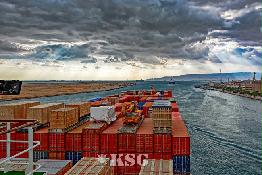
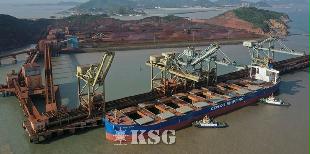
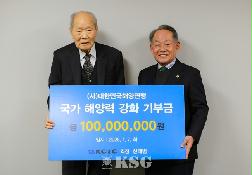
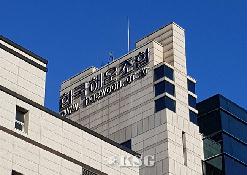
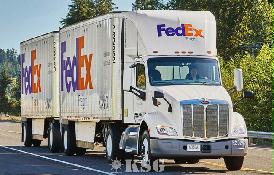
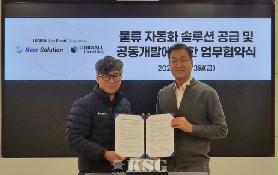
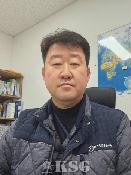
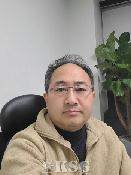
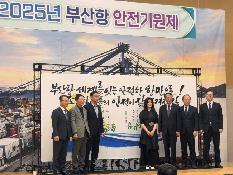
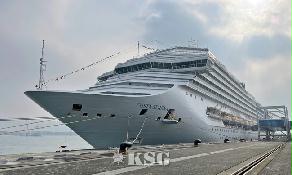
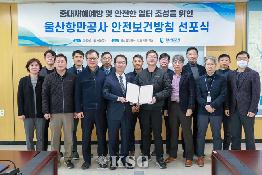
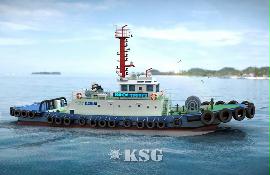
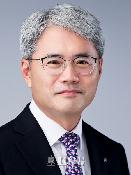
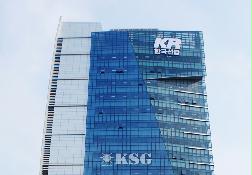
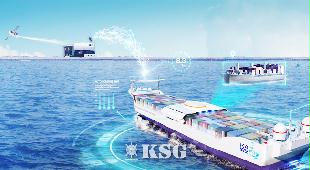
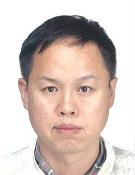
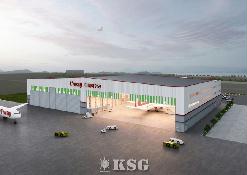
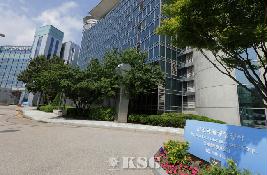

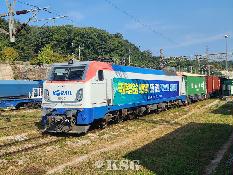
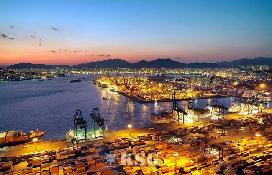

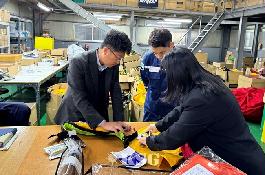
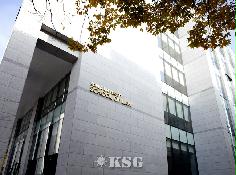
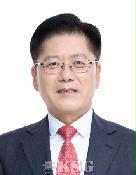
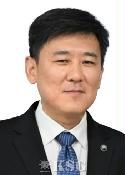
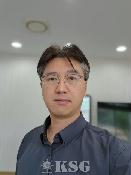
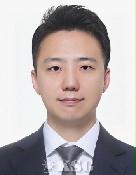
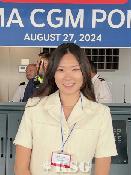





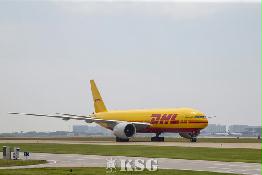
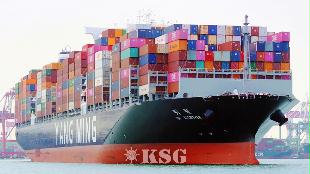
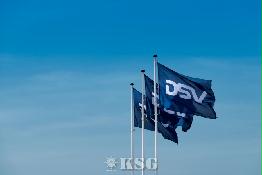
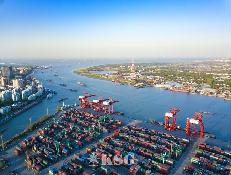
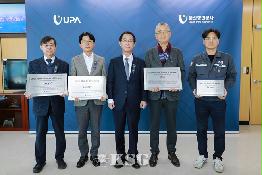
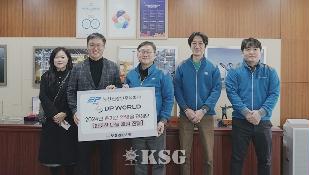








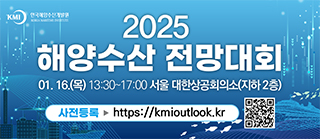












0/250
확인